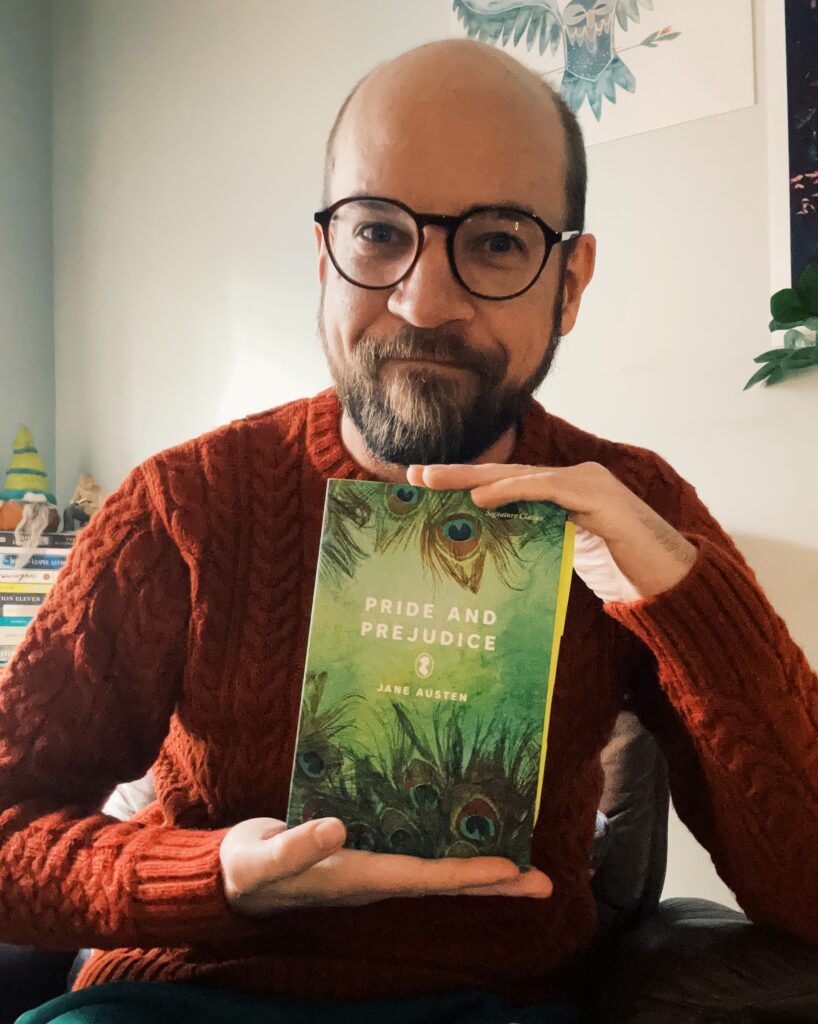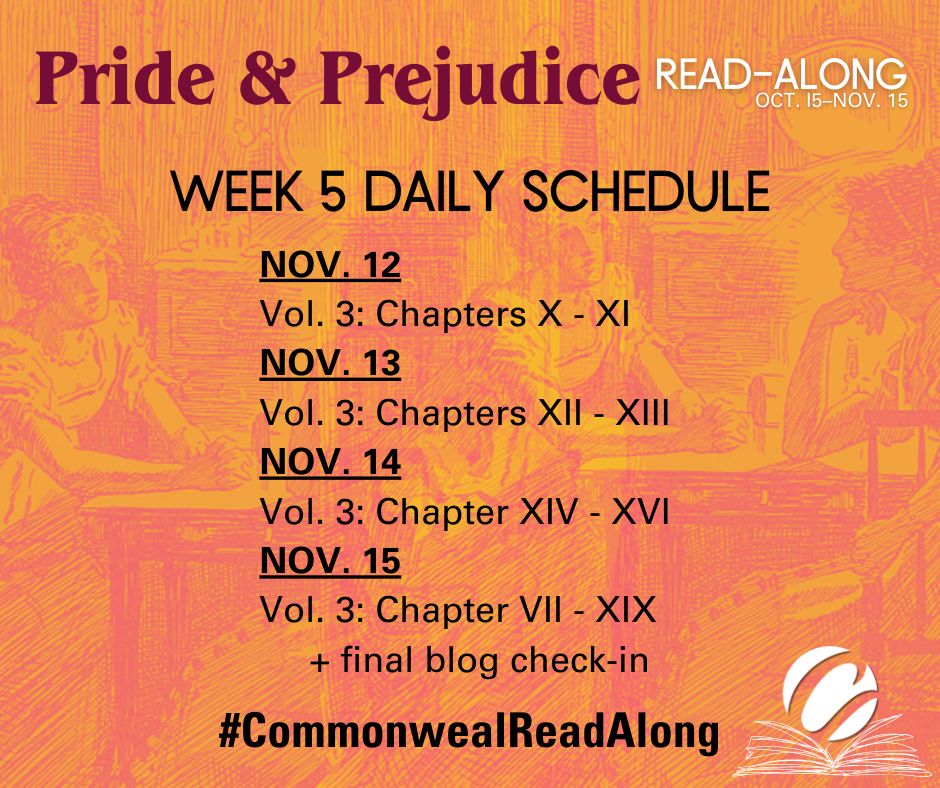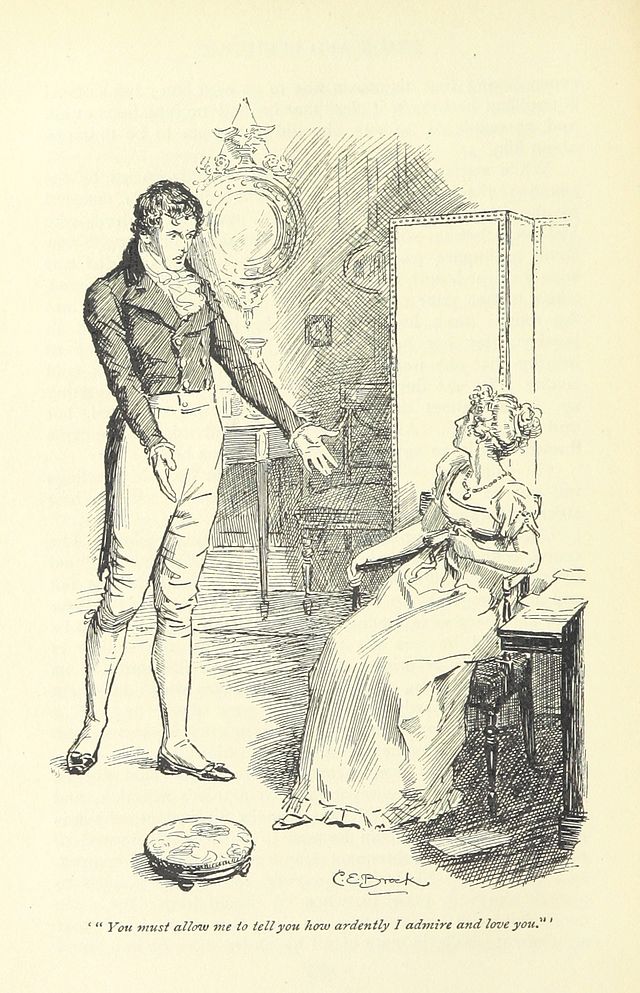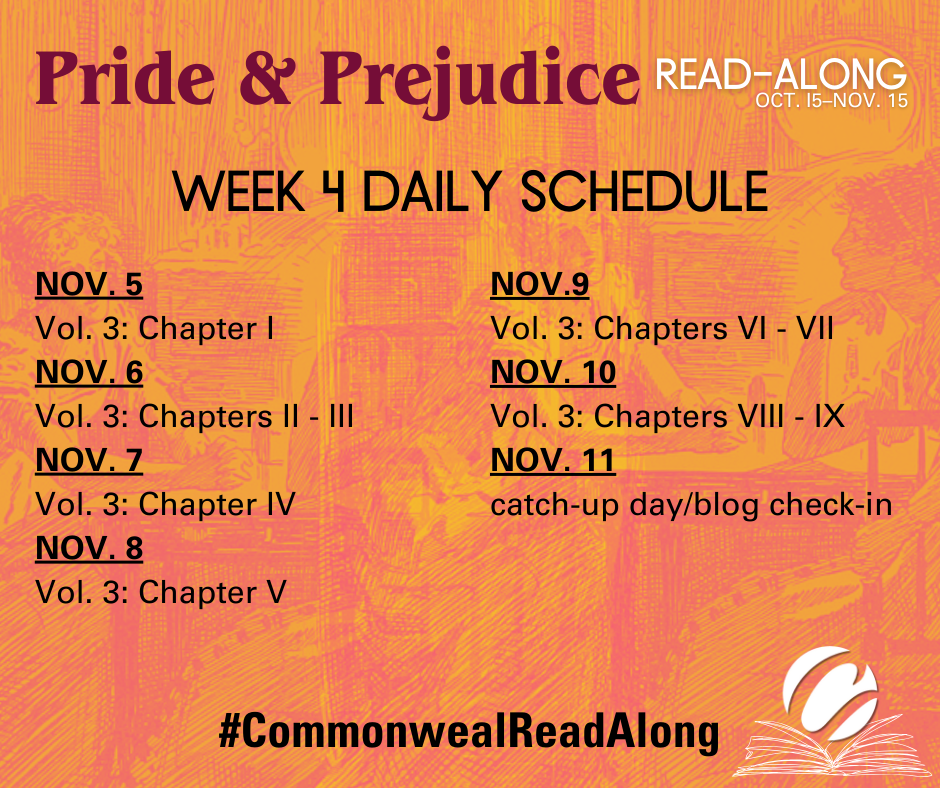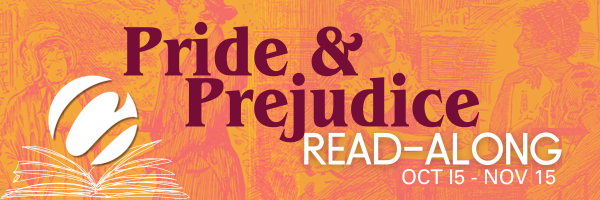
I read the final chapters of this superb classic in two sittings.
It’s absolutely engaging.
I’m not sure how to wrap this up! So I’ll point out a few things that drew my attention.
THE INNER HUMMINGBIRD
This book starts off in the spirit of a hummingbird (I mentioned that in my first post). We’re getting acquainted with the world, the locations, and its inhabitants. Over time, this becomes more and more Lizzy’s story. And I’d venture that hummingbird is still there, but it’s more internal. Lizzy’s undergoing major mental gymnastics as we ramp up to that Happily Ever After Ending.
Darcy and Wickham come to Longbourn, and Lizzy is desperate to get some kind of indication of Darcy’s affection, or some kind of communication with him. There is an irresistible, almost thriller aspect to a portion of the scene. And, like I’ve mentioned before, each little bit twists from the previous one:
She looked forward to their entrance [Darcy and Bingley], as the point on which all her chance of pleasure for the evening must depend.
“If he does not come to me, then,” said she, “I shall give him up for ever.”
The gentlemen came; and she thought he looked as if he would have answered her hopes; but, alas! The ladies had crowded round the table, where Miss Bennet was making tea, and Elizabeth pouring out the coffee, in so close a confederacy, that there was not a single vacancy near her, which would admit that of a chair. And on the gentleman’s approaching, one of the girls moved closer to her than ever, and said, in a whisper:
“The men shan’t come and part us, I am determined. We want none of them; do we?”
Darcy had walked away to another part of the room. She followed him with her eyes, envied everyone to whom he spoke, had scarcely patience enough to help any body to coffee; and then was enraged against herself for being so silly!
“A man who has once been refused! How could I ever be foolish enough to expect a renewal of his love? Is there one among the sex, who would not protest against such a weakness as a second proposal to the same woman? There is no indignity so abhorrent to their feelings!”
She was a little revived, however, by his bringing back his coffee cup himself; and she seized the opportunity of saying:
“Is your sister at Pemberley still?”
That was a lot, but, this is such a vivid depiction of the internal/external ebb and flow. Austen is playing a bit more with literal internal monologuing in this final section. I wasn’t tracking it before, but I noticed more literal quotations of Lizzy talking to herself as we ramp to the end.
MRS. (MOTHER) BENENT…
Is the least subtle character in the world. I love her so much. She’s totally insufferable and a complete joy.
There’s a scene in chapter XIII when she is trying to get all of the sisters out of the room so Bingley and Jane can be alone. She’s winking and winking before she gives up and asks to speak to Kitty alone. And minutes later, she says the same to Lizzy. It’s the stuff of sitcoms!
LADY CATHERINE STOOPS TO VISIT LONGBOURN
This is one of the most exciting, nail-biting scenes I’ve read.
DID YOU NOTICE…
We don’t get dialogue from Lizzy after Mr. Darcy declares his unchanging love to her? Austen plays fast and loose when she chooses to summarize or report on events rather than provide the actual dialogue. It’s a fascinating aspect of this novel.
Interestingly, in the final chapter, we get some first person point of view happening, that is (I think) the first time this occurs—or if it does occur elsewhere, it’s very infrequent.
Happy for all her maternal feelings was the day on which Mrs. Bennet got rid of her two most deserving daughters. With what delighted pride she afterwards visited Mrs. Bingley and talked of Mrs. Darcy may be guessed. I wish I could say, (emphasis mine) for the sake of her family, that the accomplishment of her earnest desire in the establishment of so many of so many of her children, produced so happy an effect as to make her a sensible, amiable, well-informed woman for the rest of her life…
This chapter is essentially an epilogue. Austen glides from character to character, beginning with Mrs. Bennet (who is the first character we actually encounter in this book) and ending, oddly, with the Gardiners. They are the most effective and strongest allies and advocates for Lizzy.
I have a social media friend who has a theory that this books enduring legacy rests not on the “enemies to lovers” model but more about the relatability of having embarrassing and cringe-y parents. (I figure it’s a bit of both.)
Okay, I’ve got to dash to a dress rehearsal! We’re opening Miss Bennet: Christmas at Pemberley next week.
I hope you’ve enjoyed my periodic commentary and reading (or re-reading) this wonderful story. I thoroughly enjoyed it. If you’d like to weigh in, feel free to leave a comment, post on your own social media feeds with the hashtag #CommonwealReadAlong OR…
…attend our in-person read-along wrap-up on Saturday, November 30. It’ll happen in between our two performances that day. And rumor has it there will be a little prize basket you could win! More details will be forthcoming.
Cheers!
